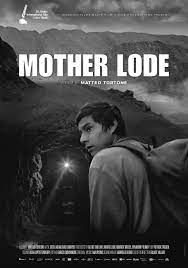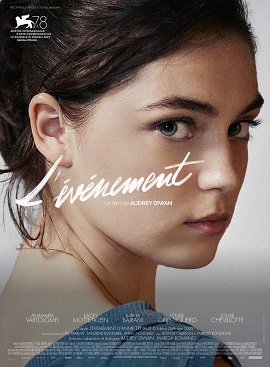Nathaniel reporting from Venice


This is my final review batch post from Venice. This weekend we'll talk Cambodia's Oscar submission (decided it deserved its own post!), and I'll sound off on "jury of one" stuff after the official winners have sunk in to underline my own 'best' of; You know how we love a list here at TFE and the neat thing about festivals is that everyone designs or ends up with their own program within the larger programs! And yes after all that (aka Monday) we'll be updating each Oscar chart. I am now safely ensconced back in NYC and thanks to Chris for holding down the fort on my travel day. As you read this I am undoubtedly snuggling with the boyfriend’s cat who is very clingy and filled with “missed you” purrs -- heaven! This post will probably contain no movies you’ve yet heard of but don’t run away! Festivals are also about discovering films from all over the world.
Here are the last four films I screened at Venice in ascending order of pleasure...

Once Upon a Time in Calcutta (Aditya Kikram Sengupta)
This one’s a long soapy multi-character drama that begins with an estranged couple dealing with the death of their young daughter. It expands to include a handful of other characters and be about not just grief, but building a new life for yourself after a divorce, family history, estranged step-family, Ponzi schemes, real estate troubles, and much more! I fully confess that I was tired but it was hard to keep track of the story threads and characters and I was shocked to learn that it wasn't an adaptation of a novel. It played like an overstuffed adaptation of a bestselling novel that didn't want to disappoint the fans by leaving anything out. But for my tastes it needed to focus more on one story to better convey the socio-economic anxiety that is always lurking in each story. I could just never find a way in, if you will, to the movie. Couldn't connect. Peripheral details like an old abandoned theater and a pregnant dog were more interesting than the main characters. C-

The Falls (Chung Mong-hong)
I know I harp on this too often for some people's tastes but why can't directors learn that films don't need to be over two hours? Sure some films work at 129 minutes or more but unless you have enough story for it, it's always a risk. If a scene isn't telling us something new...maybe ditch it? Was I experiencing festival fatigue? Yes! Chung Mong-hong's last film was the Golden Horse winning Oscar finalist A Sun which I did not see though I heard this particular criticism about it. He's again in the land of family melodrama but this time with a smaller family, just a mother and daughter during the pandemic (and an ex husband/father who pops in a couple of times). They’re all extremely testy with each other during quarantine. But the COVID-19 pandemic is only wallpaper distraction from the illness the film is actually adressing, which is mental illness.
The Falls is elegantly made and well acted but why is it so long? It's not an ensemble picture or even a plot picture but a two character drama essentially. We learn the same things about the broken family unit over and over again. There's an artful visual and narrative throughline about the building the mother and daughter live in having a blue tarp covering one whole side (and thus all of their windows) for renovations to the facade. It looks a bit like a waterfall when it billows in the wind thought that's not the full story of the film's title. This building (aka the film) is certainly beautiful to look at but it needs that renovation. A lot of films could stand to lose 10 minutes. This one could lose a whole 30 and be a significantly more potent mother/daughter drama. Despite ample merits I began to fear it would never end. C (B if it were half hour shorter)
Mother Lode (Matteo Tortone)
Here at last is proof that I have patience with “slow” cinema if the director is actually marrying form to function and has something to say! Festivals tend to preference slow art films that 'carve in real time' if you will but unless there's a significant reason to make us wait while a character walks slowly somewhere or does some mundane task, why do it? If you ask me the kind of slow paced meandering long time between cuts technique that’s frequently deployed in art cinema is just as much of an affectation as its polar opposite in restlessly fast and loud mainstream filmmaking that cuts all over the place for no particular reason other than to be “fast”. The trick is knowing what your story needs and delivering it. Shot quite gloriously in black and white Mother Lode is about a poor Peruvian man (first time actor José Luis Nazario Campos) who is preparing to leave his wife and child to work in dangerous mines. He’ll be gone for months to earn money to send home. The patient film lays down a lot of groundwork and atmosphere about the man’s world but it’s never dull, completely pulling you into his life while also making every day familiar acts like pulling a car out of a parking spot interesting through specificity of place, character, economics, and wise camera placement choices. The film has essentially three locales and by the time we’ve trekked up to the last, La Rinconada, a wintry mining town far from home, Mother Lode’s intimacy has built up enough momentum to feel like you’re truly there and learning a new town and a new job with him. What's more the film starts feeling mythological in scope as the folklore and legends of the far away town and the peculiarities of this dangerous profession sink in and dazzle. The man will (hopefully) survive it and return home, albeit changed. Mother Lode is only 86 minutes long but far richer in detail and information and variety of moods than the several of the two hour plus films seen -- Use your minutes wisely!
I was hoping this was going to be Peru’s Oscar selection but realized the director and team are largely Italian/Swiss/French so probably not. But if you see it playing at a festival, go. I can't imagine it will be as effective streaming if that's where it ends up, since it's an immersive picture. You need to be trapped in the mines in the pitch dark. B+

L’Evenement / Happening (Audrey Diwan)
Diwan's sophomore feature is an intimate drama adapted from Annie Ernaux's memoir novel about her experience with abortion in the France of the early 1960s. Like Vera Drake it takes place in a world where abortion will put both the practitioner and the client in prison (only this time it's from the perspective of the pregnant girl who doesn't want to be). The film smartly plays down its period trappings -- the clothes are sort of 60s but never feel "retro" per se -- but through its pacing, character interactions, and environment, it brilliantly conveys what it was like to be "in trouble" before there was information easily available to young women. Abortion has, of course, rarely been *easy* to access -- even in the 21st century -- but L'Evenement shows us a world before you couldn't even get information and before there was frequent discourse about it. Anne (brilliantlly portrayed by Anamaria Vartolomei) is an intelligent ambitious high school student preparing for college but the odds are firmly stacked against her -- especially that ticking clock. Doctors refuse to speak with her or lie to her. She doesn't know who among her friends to trust. L'Evenement is gripping from start to finish with terrific performances across the board --including Sandrine Bonnaire as Anne's mother, Anna Mouglasis as an abortionist, and Luàna Bajrami (Portrait of a Lady on Fire) as Anne's close friend. Happening has moments that are completely visceral-- approaching body horror levels a couple of time --and never downplays the terror of invasive medical procedures without the benefit of doctors office, or anesthesia, but it is also multi-facted in its moods and fully alive. To its credit it doesn't feel like a polemic but is merely matter-of-fact about the insanity and ignorance that springs from invasive laws around women's bodies. It's also greatly appreciated that all the characters are fully human rather than stand-ins for good or bad people and the movie is neither anti-men nor sex-negative. Best of all it never waivers in its commitment to telling the story from Anne's intimate and fiercely determined point of view. A-
I had one more movie scheduled after this but cancelled it. I was exhausted. I wanted to do a little sightseeing before leaving town and figured "end on a (very) high note". Goodbye Venice!